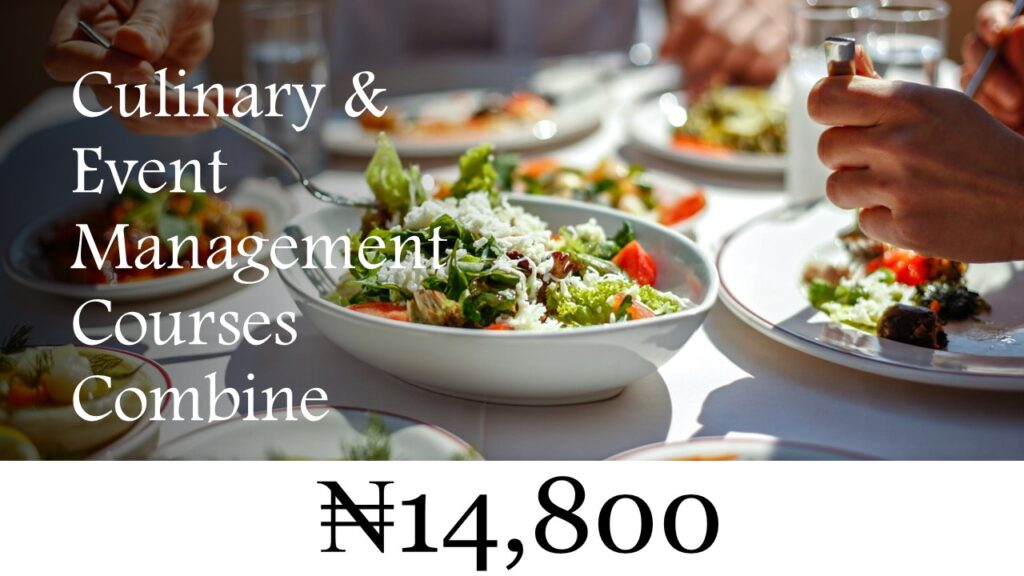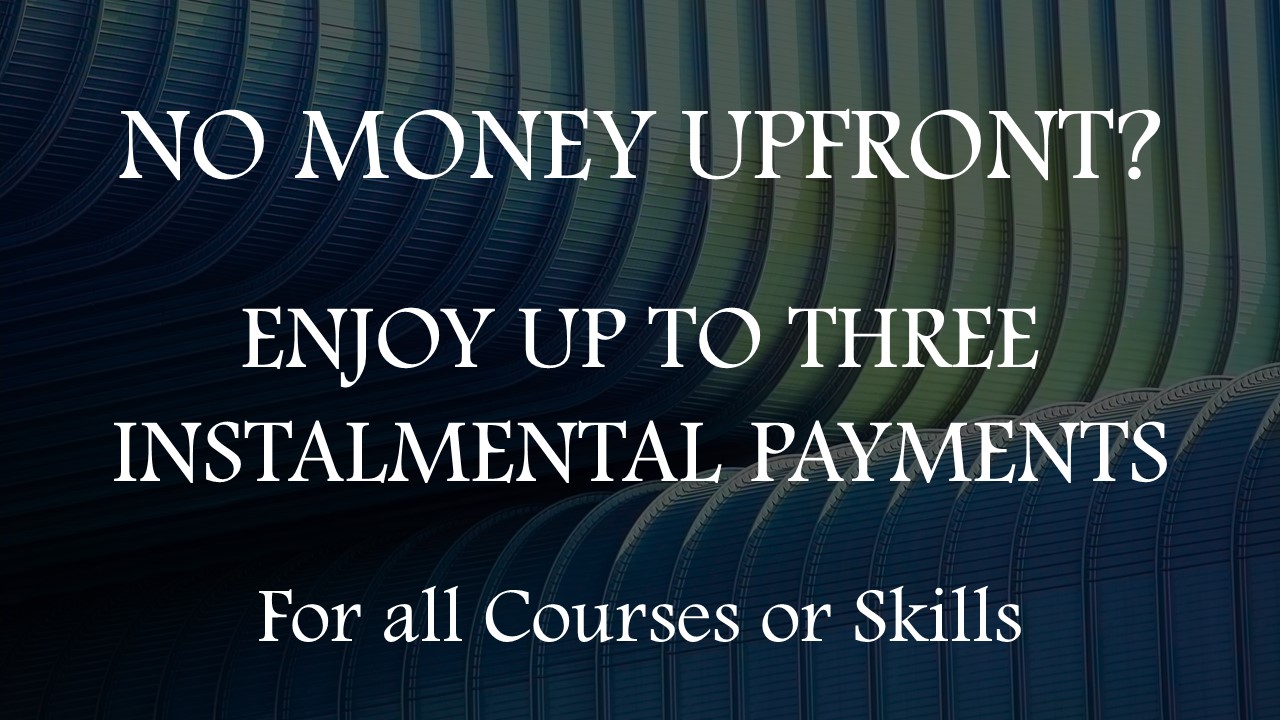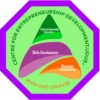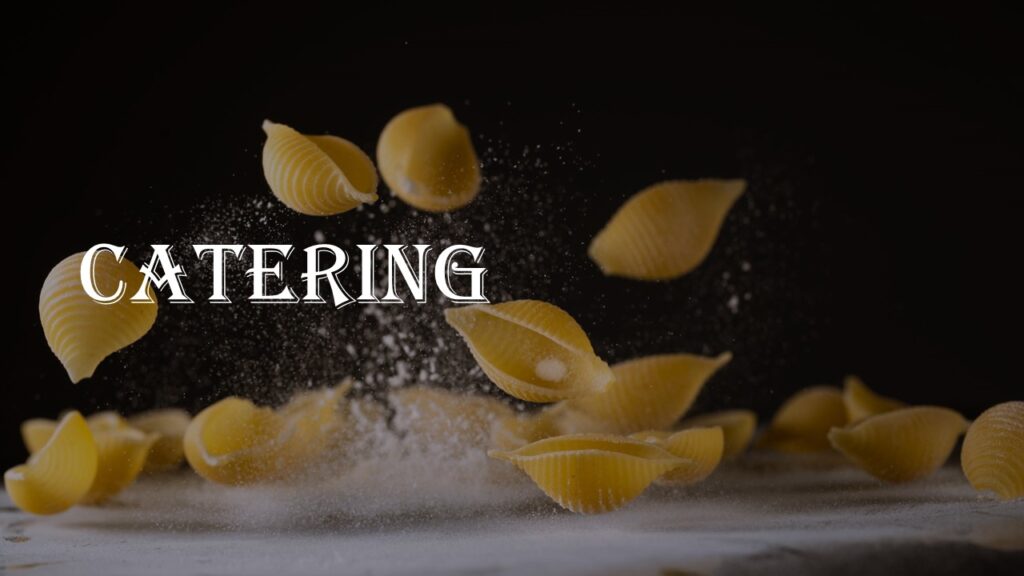
Culinary Art
Course Description
Delve into the delectable world of culinary arts in our Practical Culinary Arts for Entrepreneurs course at the Usmanu Danfodiyo University, Sokoto Entrepreneurship Centre. This hands-on, immersive program is designed to equip participants with the culinary skills and entrepreneurial acumen needed to succeed in the dynamic food industry.
Through a fusion of theory and practice, you will master the art of cooking, food presentation, menu development, and kitchen management. With a strong emphasis on entrepreneurship, this course guides you in turning your culinary passion into a thriving business venture. You will gain a deep understanding of food safety, quality standards, and the complexities of managing a culinary business.
Our state-of-the-art kitchen facilities provide the perfect setting to hone your culinary prowess. You will work closely with experienced chefs and industry experts, participating in real-world food preparation, cooking, and presentation activities. This course also explores the culinary industry’s entrepreneurial aspects, from designing and pricing a menu to marketing and managing a culinary business.
Whether you aspire to become a professional chef, launch a food startup, or enhance your cooking skills, this course offers a delectable journey that caters to all culinary enthusiasts. Join us in the world of flavors, tastes, and entrepreneurship, and embark on a savory adventure that tantalizes the taste buds and fuels your entrepreneurial spirit.
Course Objectives: By the end of this course, participants will be able to:
- Demonstrate proficiency in culinary techniques and food presentation.
- Understand the principles of menu planning and development.
- Apply food safety and quality standards in a kitchen environment.
- Comprehend the basics of kitchen management and organization.
- Develop and present a culinary business plan.
- Analyze the essentials of culinary entrepreneurship, including marketing and pricing.
- Gain practical experience in menu design and food preparation.
- Exhibit the skills required to run a culinary business efficiently and profitably.
Course Outline
Module 1: Introduction to Culinary Arts and Entrepreneurship
- Significance of culinary entrepreneurship
- Exploring culinary trends and opportunities
- Practical culinary business case studies
Module 2: Culinary Basics
- Knife skills and kitchen equipment
- Food safety and hygiene
- Cooking techniques and recipe comprehension
- Hands-on culinary preparation
Module 3: Menu Planning and Development
- Menu design principles
- Creating a concept for your menu
- Pricing strategies and cost analysis
- Hands-on menu development
Module 4: Kitchen Management
- Organization and workflow in a professional kitchen
- Kitchen staff management and roles
- Food procurement and inventory management
- Practical kitchen management exercises
Module 5: Culinary Entrepreneurship
- Introduction to culinary entrepreneurship
- Marketing strategies for culinary businesses
- Financial planning and budgeting
- Guest speakers from successful culinary entrepreneurs
Module 6: Culinary Business Plan
- Developing a culinary business plan
- Presenting a business plan to the class
Module 7: Practical Culinary Experience
- Practical menu design and preparation
- Restaurant simulation: Running a culinary business
- Final culinary presentation and assessment
Assessment:
- Practical cooking and food presentation
- Menu development and pricing exercises
- Culinary business plan presentation
- Written examinations and quizzes
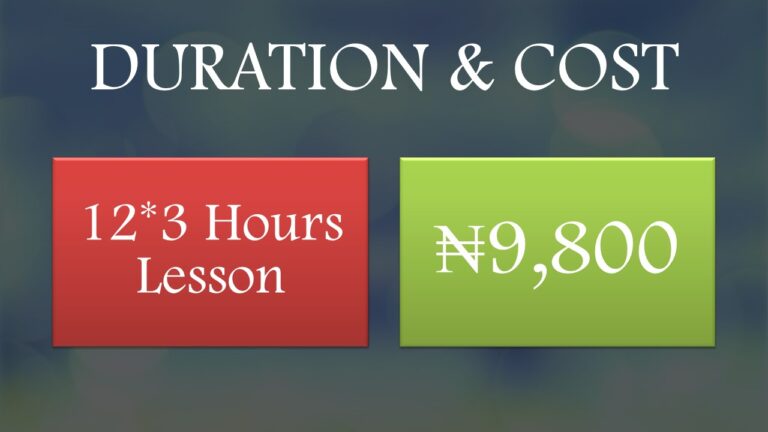
Event Management
Course Description
Step into the captivating world of event management through our Professional Event Management course. Designed to empower participants with the skills and knowledge needed to plan, execute, and oversee a wide range of events, this comprehensive program dives deep into the art and science of creating unforgettable experiences.
Whether you aspire to become an event planner, coordinator, or organizer, or simply wish to enhance your event management expertise, this course provides a solid foundation in event design, logistics, marketing, and execution. You’ll learn the essentials of event planning, including identifying client needs, selecting venues, managing budgets, and coordinating every aspect of an event from concept to completion.
The curriculum blends theory and practical experience, providing hands-on event planning projects, case studies, and access to industry experts. You’ll explore various types of events, from corporate conferences and weddings to festivals and social gatherings, gaining insights into the intricacies of each.
Our course also delves into the business side of event management, covering topics such as event marketing, legal considerations, risk management, and building a successful event planning business. With a focus on professionalism and innovation, this program equips participants with the tools and confidence to craft remarkable events that leave lasting impressions.
Whether you are beginning your journey in event management or seeking to elevate your career, our Professional Event Management course is your gateway to mastering the art of creating memorable and successful events.
Course Objectives:
By the end of this course, participants will be able to:
- Understand the principles and stages of event management.
- Identify client needs and tailor event designs accordingly.
- Select appropriate venues, manage budgets, and handle logistics.
- Develop effective event marketing strategies.
- Gain insights into different types of events and their unique requirements.
- Comprehend the legal and risk management aspects of event planning.
- Acquire the knowledge and skills needed to launch an event planning business.
Note: The course outline is subject to modification based on the specific needs of participants and the evolving event management industry.
Course Outline
Module 1: Introduction to Event Management
- Defining event management and its significance
- Event management as a career
- Types of events and their characteristics
- Exploring the event planning process
Module 2: Client Needs and Event Design
- Understanding client expectations and requirements
- Concept development and creative event design
- Setting event objectives and goals
- Creating event design proposals
Module 3: Venue Selection and Budget Management
- Venue selection criteria
- Negotiating with venues
- Event budget planning and management
- Cost control and financial accountability
Module 4: Event Marketing and Promotion
- Event marketing strategies and channels
- Creating event marketing materials
- Digital marketing for events
- Social media and event promotion
Module 5: Types of Events and Their Requirements
- Corporate events: Conferences, seminars, and trade shows
- Social events: Weddings, parties, and reunions
- Festivals and cultural events
- Sports events and entertainment
Module 6: Legal and Risk Management
- Legal considerations in event management
- Contracts, permits, and licenses
- Event insurance and liability
- Risk assessment and crisis management
Module 7: Launching an Event Planning Business
- Building an event planning business plan
- Marketing your event planning business
- Legal and financial considerations for event planning entrepreneurs
- Guest speakers from successful event planning entrepreneurs
Assessment:
- Event design and planning projects
- Event marketing strategy development
- Written assignments and case studies
- Final examination

DISCOUNT FOR THE TWO COURSES
